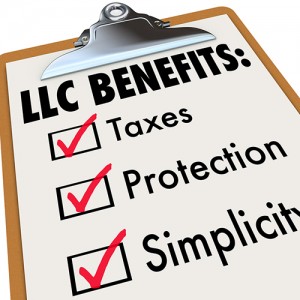Happy Labor Day Weekend! Our offices will be closed Monday, September 4th. Enjoy the weekend!
Brady is the owner of Ramsay & Associates. He specializes in financial statement preparation and personal, fiduciary and corporate tax and accounting.
His professional experience includes seven years' experience for local and national CPA firms before joining Ramsay & Associates in 2006.
He has a Bachelor of Accounting degree from the University of Minnesota Duluth. He is a Certified Public Accountant, a member of the Minnesota Society of CPA's, an Eagle Scout, as well as an active volunteer in the community.
 Your compensation may take several forms, including salary, fringe benefits and bonuses. If you work for a corporation, you might also receive stock-based compensation, such as stock options. These come in two varieties: nonqualified (NQSOs) and incentive (ISOs). With both NQSOs and ISOs, if the stock appreciates beyond your exercise price, you can buy shares at a price below what they’re trading for.
Your compensation may take several forms, including salary, fringe benefits and bonuses. If you work for a corporation, you might also receive stock-based compensation, such as stock options. These come in two varieties: nonqualified (NQSOs) and incentive (ISOs). With both NQSOs and ISOs, if the stock appreciates beyond your exercise price, you can buy shares at a price below what they’re trading for.
The tax consequences of these types of compensation can be complex. So smart tax planning is critical. Let’s take a closer look at the tax treatment of NQSOs, and how it differs from that of the perhaps better known ISOs.
NQSOs create compensation income — taxed at ordinary-income rates — on the “bargain element” (the difference between the stock’s fair market value and the exercise price) when exercised. This is regardless of whether the stock is held or sold immediately.
ISOs, on the other hand, generally don’t create compensation income taxed at ordinary rates unless you sell the stock from the exercise without holding it for more than a year, in a “disqualified disposition.” If the stock from an ISO exercise is held more than one year, then generally your lower long-term capital gains tax rate applies when you sell the stock.
Also, NQSO exercises don’t create an alternative minimum tax (AMT) preference item that can trigger AMT liability. ISO exercises can trigger AMT unless the stock is sold in a disqualified disposition (though it’s possible the AMT could be repealed under tax reform legislation).
When you exercise NQSOs, you may need to make estimated tax payments or increase withholding to fully cover the tax. Otherwise you might face underpayment penalties.
Also keep in mind that an exercise could trigger or increase exposure to top tax rates, the additional 0.9% Medicare tax and the 3.8% net investment income tax (NIIT). These two taxes might be repealed or reduced as part of Affordable Care Act repeal and replace legislation or tax reform legislation, possibly retroactive to January 1 of this year. But that’s still uncertain.
Have tax questions about NQSOs or other stock-based compensation? Let us know — we’d be happy to answer them.
Brady is the owner of Ramsay & Associates. He specializes in financial statement preparation and personal, fiduciary and corporate tax and accounting.
His professional experience includes seven years' experience for local and national CPA firms before joining Ramsay & Associates in 2006.
He has a Bachelor of Accounting degree from the University of Minnesota Duluth. He is a Certified Public Accountant, a member of the Minnesota Society of CPA's, an Eagle Scout, as well as an active volunteer in the community.
This is an exciting time for us at Ramsay & Associates as we celebrate 40 years of providing accounting, tax, and advisory services for our business and personal clients.
Rich Ramsay founded Ramsay & Associates in 1976 with one primary goal – the financial success of our clients. Ten years ago, I joined the firm. Both Rich and I are very involved with the Rotary Club of White Bear Lake, and I serve on several non-profit boards. Ramsay & Associates provides free tax preparation services to a handful of non-profit organizations each year.
We now have a staff of nine, including three CPAs, dedicated to providing the highest level of accounting services. Over the years, we’ve worked with a wide variety of personal and business clients. We have enjoyed getting to know you and to help you meet your financial goals, whatever they might be. We’ve watched as generations of children have grown up, and some of those children have become clients as well.
It is our pleasure to invite you to celebrate the milestone of 40 years with us. Please join us at our 40th Anniversary Celebration on Thursday, October 20, 2016, for an intimate evening of food, drinks, and friendly conversation.
Ramsay & Associates 40th Anniversary Celebration
Thursday, October 20, 2016
5 pm to 8 pm
Bullard Rainforest Auditorium (Visitor Center, second floor)
Como Park Zoo & Conservatory
1225 Estabrook Drive, St. Paul (see map)
We kindly ask that you RSVP by October 14. Call 651-429-9111 or email Sarah@RamsayCPA.com.
We look forward to seeing you on Thursday, October 20, and we appreciate your business and support.
Brady is the owner of Ramsay & Associates. He specializes in financial statement preparation and personal, fiduciary and corporate tax and accounting.
His professional experience includes seven years' experience for local and national CPA firms before joining Ramsay & Associates in 2006.
He has a Bachelor of Accounting degree from the University of Minnesota Duluth. He is a Certified Public Accountant, a member of the Minnesota Society of CPA's, an Eagle Scout, as well as an active volunteer in the community.
 As the weather turns more toward winter, Thanksgiving is coming near, meaning roasting turkeys, planning gatherings, and eating more nutmeg in one day than the other 364 days of the year combined.
As the weather turns more toward winter, Thanksgiving is coming near, meaning roasting turkeys, planning gatherings, and eating more nutmeg in one day than the other 364 days of the year combined.
Really though, it’s a chance to remember on all the good things in our lives. Rarely can we take the time to reflect on all that life has given us, but Thanksgiving is a day for just that purpose.
We’re thankful for a whole bunch of things here at Ramsay, and hope that each of you has a safe and enjoyable Thanksgiving weekend.
Brady is the owner of Ramsay & Associates. He specializes in financial statement preparation and personal, fiduciary and corporate tax and accounting.
His professional experience includes seven years' experience for local and national CPA firms before joining Ramsay & Associates in 2006.
He has a Bachelor of Accounting degree from the University of Minnesota Duluth. He is a Certified Public Accountant, a member of the Minnesota Society of CPA's, an Eagle Scout, as well as an active volunteer in the community.
 People always ask me, “Should I be an LLC or an S corporation”, and my answer is always the same, “It depends”. It’s as simple as that, it does depend on each individuals unique situation. LLC’s and S corps are similar in that they both provide limited liability protection to the members or shareholders. Both entities are also what’s called a “pass-through” entity, meaning the income is passed through to the owners and reported on the owners’ personal income tax return. This eliminates the double taxation issue incurred by C corporations.
People always ask me, “Should I be an LLC or an S corporation”, and my answer is always the same, “It depends”. It’s as simple as that, it does depend on each individuals unique situation. LLC’s and S corps are similar in that they both provide limited liability protection to the members or shareholders. Both entities are also what’s called a “pass-through” entity, meaning the income is passed through to the owners and reported on the owners’ personal income tax return. This eliminates the double taxation issue incurred by C corporations.
An LLC offers ease of creation and flexibility down the road. There are less restrictions on ownership, structure and reporting. An LLC allows for profits and losses to be split in a manner other than by ownership units. But you may end up paying more in employment taxes as an LLC. A single-member LLC is also permitted to not file a separate tax return, but to rather report the activity on the owner’s personal income tax return.
An S corporation has restrictions as to who can be an owner and how many owners there can be. There can also be only one class of stock. An S corporation has no flexibility as to money distributed to shareholders, it is on a per share basis.
An LLC owner is considered to be self-employed and as such all profits are subject to employment taxes. S corporation owners do not pay self-employment taxes on the profits, but rather on the wages paid to the shareholders. The company will pay it’s half of social security and Medicare and the employee, or shareholder, will pay the other half. But herein lies the rub. The company MUST pay a reasonable wage first, and then profits may be distributed to owners. The IRS does not define what a “reasonable” wage is and it is up to the taxpayer to determine this.
So in the end, there is no single right answer to the question of whether to be an LLC or an S corp. Consult your tax advisor for the best fit for you.
Brady is the owner of Ramsay & Associates. He specializes in financial statement preparation and personal, fiduciary and corporate tax and accounting.
His professional experience includes seven years' experience for local and national CPA firms before joining Ramsay & Associates in 2006.
He has a Bachelor of Accounting degree from the University of Minnesota Duluth. He is a Certified Public Accountant, a member of the Minnesota Society of CPA's, an Eagle Scout, as well as an active volunteer in the community.
This site is for informational purposes only and is not intended to be a solicitation or offering of any security and:
We are registered to offer securities in the following states: Arizona, Arkansas, California, Florida, Montana, Minnesota, North Carolina and Wisconsin.
Securities offered through J.W. Cole Financial, Inc. (JWC) Member FINRA/SIPC. Advisory services offered through J.W. Cole Advisors, Inc. (JWCA). Ramsay Wealth Management and JWC/JWCA are unaffiliated entities.
PRIVACY POLICY